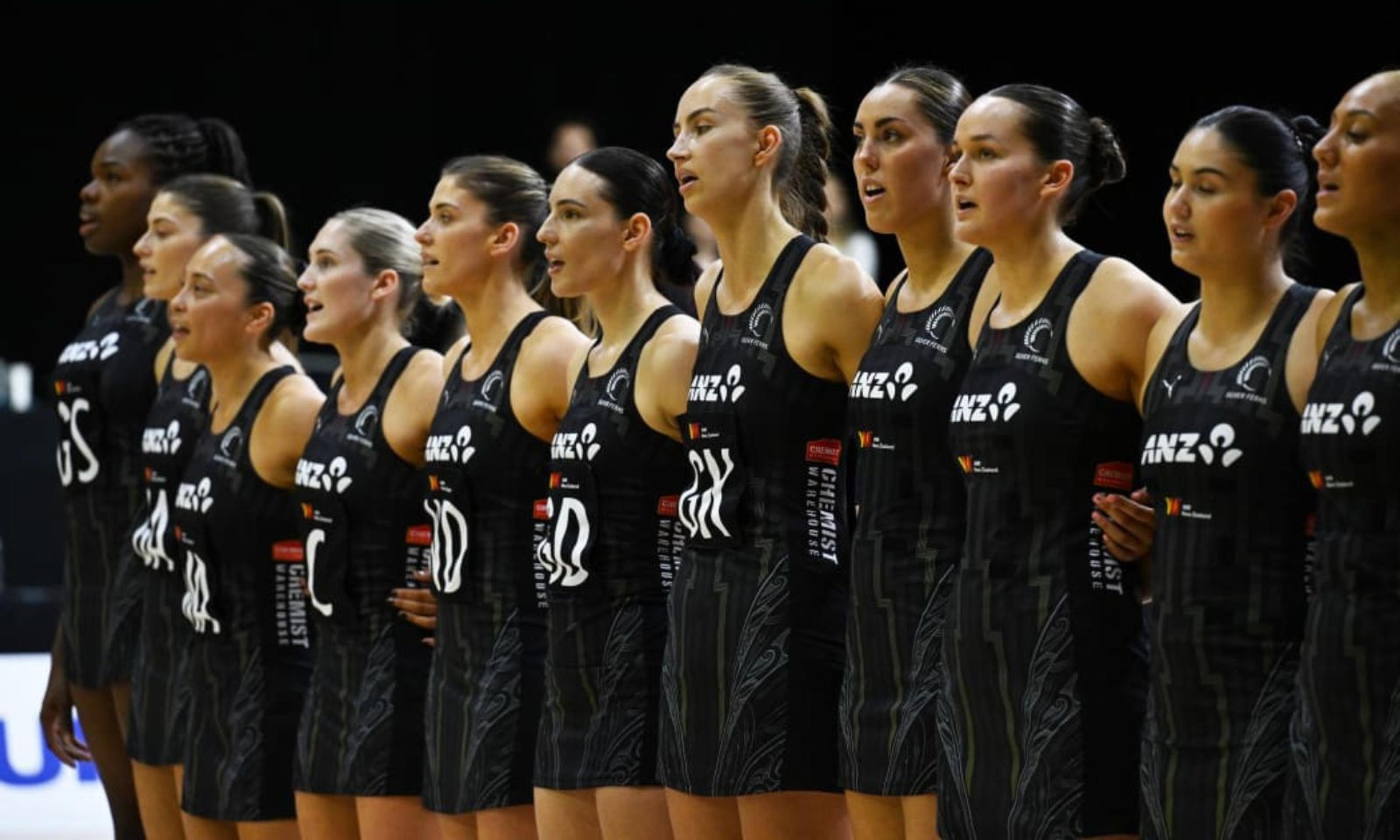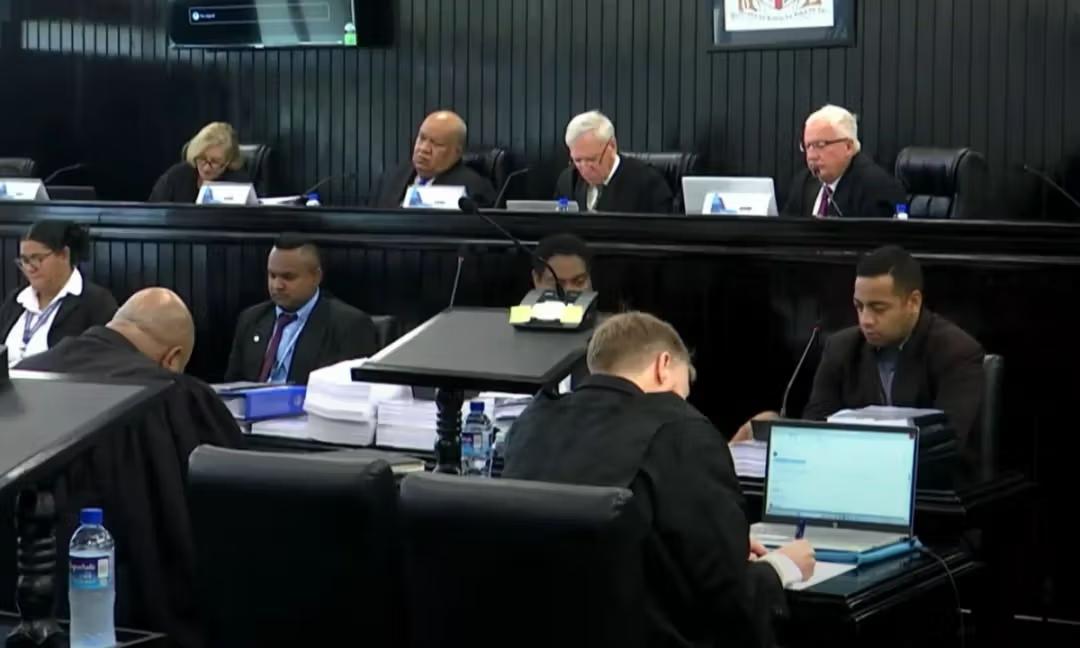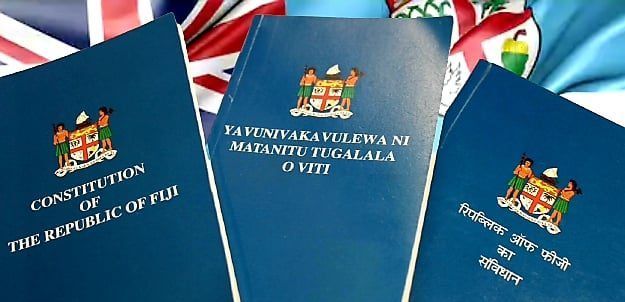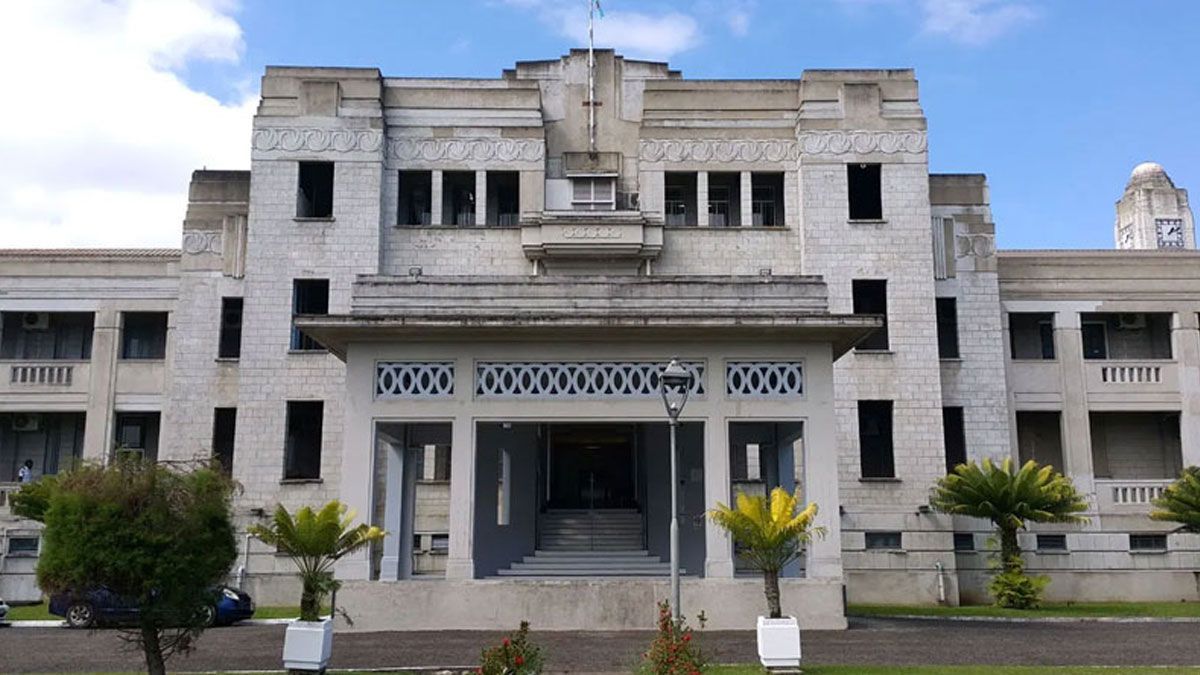

Fiji Law Society counsel Arthur Moses SC, left, and Fiji's Chief Justice Salesi Temo.
Photo/Facebook/The Fiji Times
Supreme Court hearing raises critical questions about Fiji Constitution amendment process
Following a week of submissions, the Fiji Law Society says the Constitution is valid, emphasising its role as the country's highest law.


Inked across lands: How Pacific tattoo art is thriving in Germany

US funding cuts threaten to 'dry up' future of Pacific scientists - expert



Inked across lands: How Pacific tattoo art is thriving in Germany

US funding cuts threaten to 'dry up' future of Pacific scientists - expert

Australian lawyer Arthur Moses SC says Fiji's 2013 Constitution is valid and serves as the country's supreme law.
The comment comes after a week of major media attention around court hearings that included representatives from all the political parties in Fiji.
Moses represented the Fiji Law Society during a reference to the Supreme Court on the interpretation of the nation's constitution.
The court's advisory will focus on how to amend the constitution, including what steps and requirements are needed for such changes.
In 2006, a coup led to the president of Fiji abolishing the 1997 Constitution in 2009. The new 2013 Constitution was put into effect that same year, and since then, Fiji has held three national elections and created over 400 laws under this new framework.
The 2013 Constitution specifies that to amend it, a "double supermajority" is necessary, meaning that both three-fourths of Parliament members and three-fourths of registered voters must approve changes in a referendum.

The hearing last week in Fiji's Supreme Court. Photo/Fiji government
The Supreme Court faced crucial questions, such as:
Can the court provide an advisory opinion?
Which Constitution, the 1997 or 2013 version, is currently recognised as the highest law?
How should the amendment process be interpreted?
Do the courts have the authority to review these amendment rules?
Are the amendment rules themselves unconstitutional?
And what actions should the court take based on its findings?

Fiji's Constitution. Photo/Facebook/Legal Aid Fiji
The constitution was designed to give all citizens equal rights and status, but it has become a hot topic in Fijian politics since it was adopted.
Critics argue that the constitution was forced upon the people by the previous government led by Frank Bainimarama and was written by the former Attorney-General, Aiyaz Sayed-Khaiyum, at the time. He denies the claims.
In total, 11 parties participated in the hearings, contributing different viewpoints and arguments. The hearings, which lasted three days in Suva, included complex discussions about both domestic and international law.
Moses argued that courts do not have the power to review the original constitution’s provisions, stating that it is not their job to change the constitution.
He says if the court were to agree with the government's position, it could take away the public's right to vote on constitutional changes, potentially allowing a simple majority of Parliament to make amendments.
He adds that this would undermine the principle that the constitution belongs to the people.

Fiji's Government Buildings in Suva. Photo/Fiji govt
Moses was supported by Professor Patrick Keyzer and Dane Luo, with guidance from William (Wylie) Clarke, the President of the Fiji Law Society.
Fiji's Chief Justice Salesi Temo says the Supreme Court will make a ruling on the country’s constitution as soon as possible.
Speaking to local journalists, Temo stressed the importance of public understanding of the case, praising the media's role in making information accessible to everyone.
The hearings, originally planned for 18 to 22 August, ended in just three days.
Keyzer teaches law and public policy at the Australian Catholic University, while Luo is a scholar specialising in administrative law at Oxford University and has recently received a prestigious academic award - the Vinerian Scholarship Proxime Accessit - for second-best performance in the Bachelor of Civil Law.
Fiji's Supreme Court is expected to release its opinion by 5 September 2025.
Watch Arthur Moses' submission to Fiji's Supreme Court below.